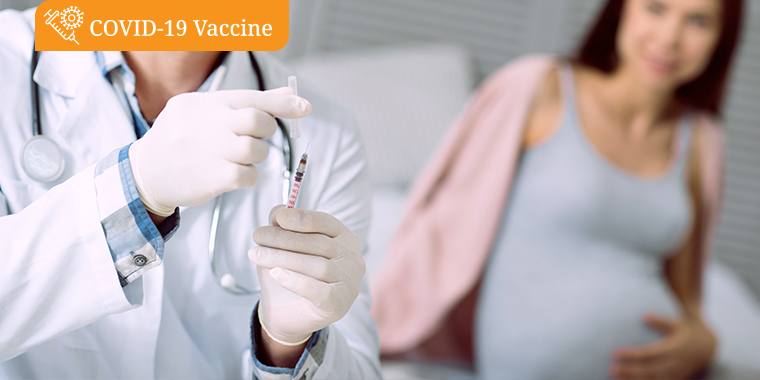Pregnant Women Should Have Full Access To COVID-19 Vaccine, Say Leading Organizations

Answer a few questions and we'll provide you with a list of primary care providers that best fit your needs.
Pregnant women weighing their option to receive the COVID-19 vaccine need to look no further than recommendations outlined by leading health care organizations and the advice of their own physician.
Pregnant women are eligible to receive the COVID-19 vaccine. And leading organizations — including the American College of Obstetricians and Gynecologists (ACOG) and the Center for Disease Control and Prevention (CDC) — say that pregnant women should not be disqualified from receiving any of the COVID-19 vaccines currently approved and distributed in the United States.
Premier Health Now recently spoke with maternal-fetal medicine specialist David McKenna, MD, to learn more about these recommendations and how they should be interpreted and applied.
Making a Data-Driven Decision
“What these organizations are saying is that each woman should make the decision for herself through the guidance of her own personal physician,” says Dr. McKenna. “Women don’t need the approval of their physician to receive it, but if they are concerned about their decision, they should consult with their provider.”
Dr. McKenna says preliminary data shows that a woman who is pregnant has a higher likelihood of experiencing serious illness from COVID-19 than a non-pregnant woman at the same age.
“Data is very clear for pregnant women who contract COVID-19,” says Dr. McKenna. “They’re more likely to get admitted to the hospital, they’re more likely to get admitted to the ICU, and they’re more likely to die.”
This data is not unexpected, he says, when history is used as a guide. Research published in the New England Journal of Medicine five years after the H1N1 outbreak in 2009 looked specifically at the disease’s effect on pregnant women compared to age-matched controls of non-pregnant women. The study found that the risk of severe illness, ICU admittance, and even death was five times more likely if a woman was pregnant.
Symptoms of COVID-19 remain the same for a pregnant woman as for those who are not pregnant, including respiratory and widespread organ distress. However, one symptom of COVID-19 has OB/Gyns particularly concerned.
“We always worry about the increased risk for blood clots during a woman’s pregnancy, and that is one of the manifestations of the COVID-19 infection,” Dr. McKenna says.
He also explains that it’s important to recognize that the two COVID-19 vaccines currently available in the United States use new technology that poses no threat to the unborn child.
The mRNA vaccine goes into a woman’s cells and tricks the cells into making the spike protein from the coronavirus — the one that causes the virus to adhere to receptors in the body’s cells and make you sick. As a result, the body begins producing antibodies to the spike proteins to protect you, he says.
“It’s a new way of approaching vaccines, and it’s brilliant,” Dr. McKenna says. “When you think of the mechanism used by vaccines that aren’t used during pregnancy, this one doesn’t fit that pattern. We’re not giving anyone the coronavirus with these vaccines.”
Research is ongoing, but Dr. McKenna says it’s likely that a pregnant woman who receives the vaccine and develops antibodies to the virus will pass those antibodies on to her unborn child. Similarly, a nursing mother who receives the vaccine could help pass the antibodies on to her baby.
Special Consideration For Women Of Color
Dr. McKenna emphasizes the clear disparity of how COVID-19 affects people of color. He urges pregnant women in at-risk ethnic populations to consider their higher likelihood for severe infection and mortality, and to make the COVID-19 vaccine a high priority.
“If you look at data, you will see that people of color are twice as likely to have severe disease or die from COVID-19,” Dr. McKenna says. “It’s not that much different than what we already see with infant mortality.”
COVID-19 affects every individual differently, whether it’s race, age, or medical condition. Therefore, Dr. McKenna advises men and women of childbearing age to consult with their physician about the vaccine. There’s no early indication that the vaccines would affect a woman or man’s ability to conceive, but it’s wise for individuals to consider their own risk for COVID-19 based on all factors.
Answer a few questions and we'll provide you with a list of primary care providers that best fit your needs.
Source: David McKenna, MD, Perinatal Partners





